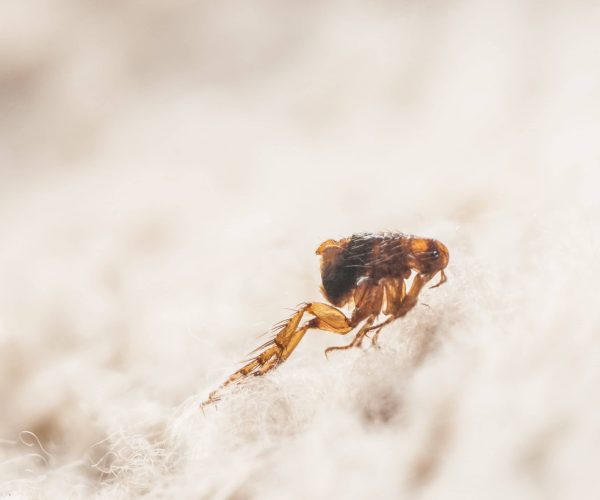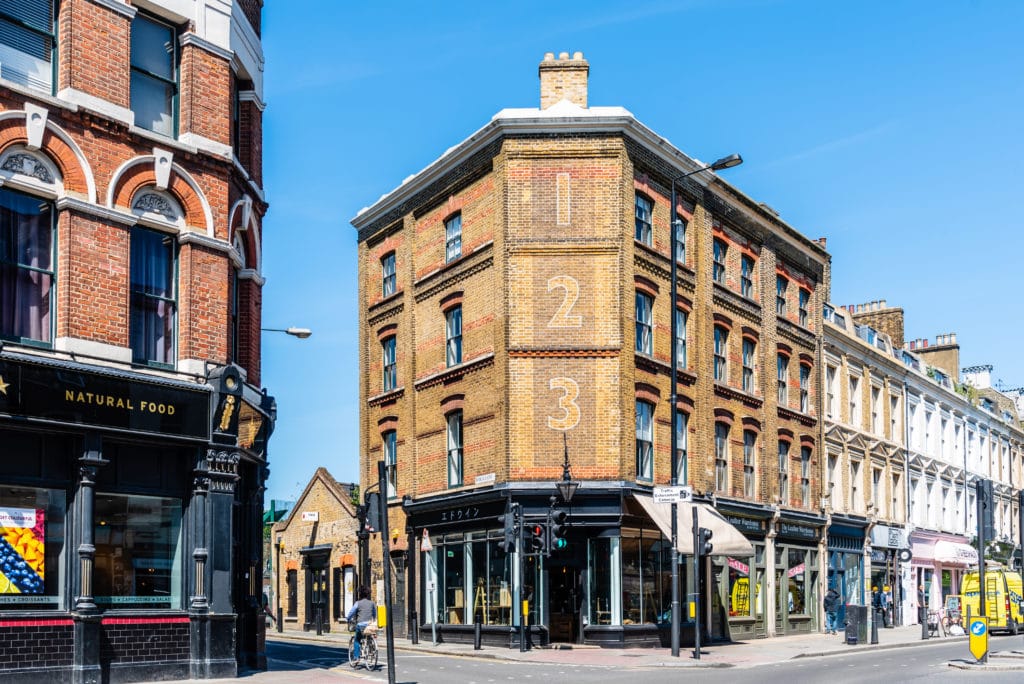
There are 14000 species of fleas worldwide, and it has been possible to identify 60 species in Britain. Therefore, it is not surprising that these predatory parasites infest London’s homes and businesses. Fleas can jump high and run speeds that would even impress Usain Bolt. Flea bites can irritate skin and are incredibly unpleasant. Additionally, flea larvae can stay dormant in adult flea droppings, as well as in cracks and crevices in your home or business. If you identify fleas in your home or business, you should contact a professional pest controller for an emergency flea control treatment. Furthermore, if you have pets, seek local veterinary advice for flea collar treatment.
Facts:
- Name: Flea – Order Siphonaptera
- Distribution: Worldwide and confirmation of origin are unknown. Commonly found on badgers, foxes, Humans and pets, particularly dogs and cats.
- Features: Egg – 0.5mm, pearly white. Adults – about 2mm long, dark brown, wingless, laterally flattened with large hind legs for jumping.
- Sustenance: Parasite as adult feeding on human and animal blood.
- Reproduction: Thrive in humid conditions. Eggs will hatch in 2-3 days, Larvae 2-3 moults and then fully grown in 2-3 weeks.


Flea Removal for London homes
Our Flea control treatments consist of two treatments with a 7-14 day gap depending on the infestation level.
- Identify: The technician will complete a full survey of your property to assess the level of infestation and recommendations for control.
- Assess: The technician will risk assess your property to ensure that your home or business is secure.
- Treat: Once the infestation has been identified and assessed and the area is secure – we will safely treat the property with COSHH regulated insecticide using residual and ULV fogging treatment.
Flea Treatments for Commercial Buildings
When most people think of flea infestations in London, they probably think of cats and dogs in homes, not their workspace. Unfortunately, fleas can infest offices and commercial buildings just as domestic households. With many staff having pets, it is not surprising flea infestations may occur. Fleas may not be as common in an office block to a residential home. Still, when an infestation breaks out, fleas can spread rapidly with more space and potential hosts to feed off. Identifying and carrying out an office flea treatment swiftly will ensure the infestation is controlled before spreading and causing panic across the business. We recommend a site survey before the treatment. Sometimes, flea treatment is not always needed, and static electricity, which is causing skin irritation. Static electricity can irritate staff members’ skin showing up with marks that may look like bites. Ruling this out with a professional pest control survey before undergoing any commercial flea treatment is vital before causing unnecessary disruption and panic.

Flea Removal London - Frequently Asked Questions
Bites will usually be a good indication and mainly be around the leg area, with the host being able to feel it occasionally. An excellent way to check if unsure is leaving a lamp on next to a small bowl with washing up- liquid overnight. If there is a flea issue, you will be able to spot fleas in the bowl in the morning.
The Co2 we breathe out will attract fleas. Some individuals may produce more CO2 than others, which will mean they may have more bites.
The first step is to wash bedding and clothing throughout the property at high temperature, vacuum all areas emptying the container immediately. It is then vital to book a professional pest control survey, followed up by a treatment using COSHH regulated insecticides if an infestation if the survey identifies fleas. If you have pets, contact your veterinary practice for guidance for a flea collar treatment.
If you have fleas in your home, it is likely they will bite you. You can protect your skin from flea bites by covering skin with clothing or using a DEET spray. However, these are only temporary measures. Ultimately, the most important cause of action is to contact a professional pest controller.
